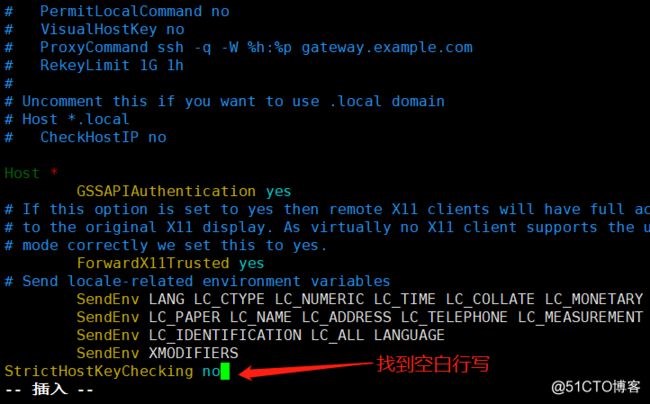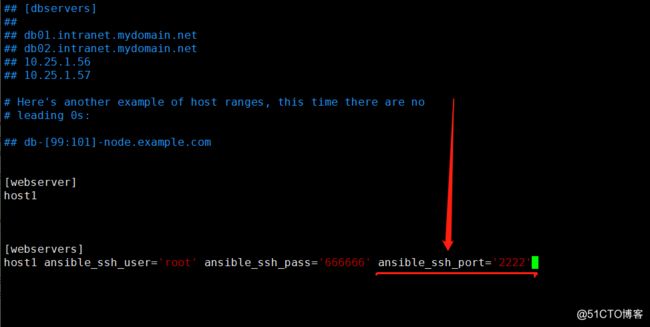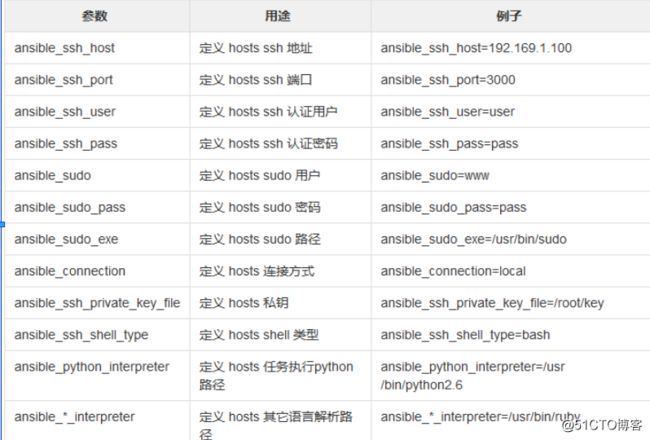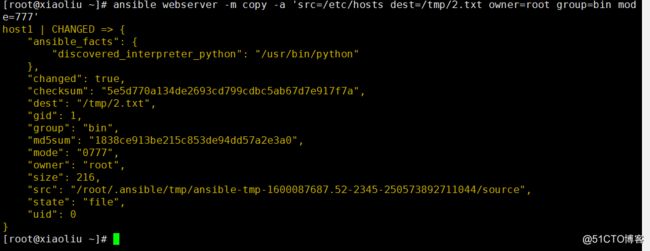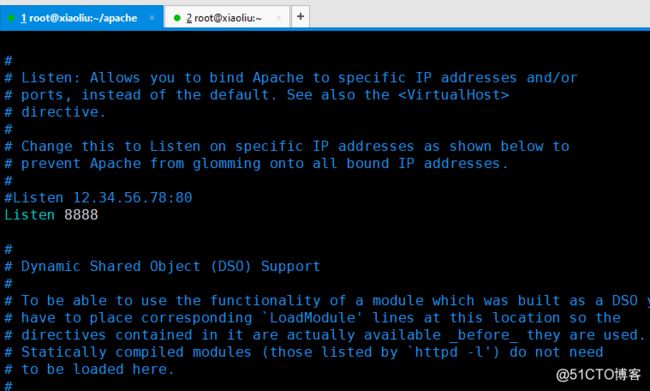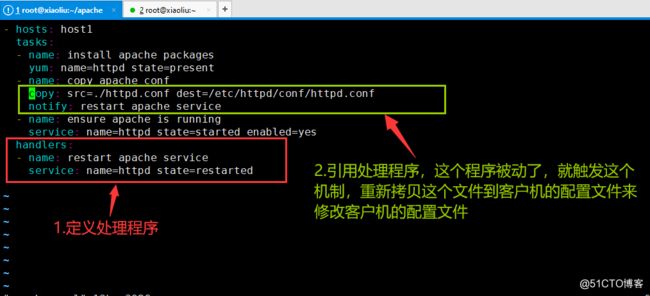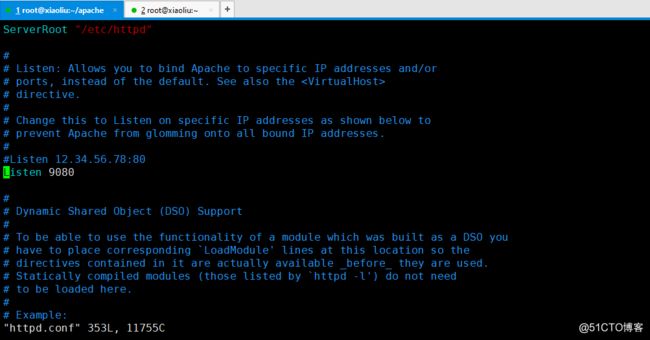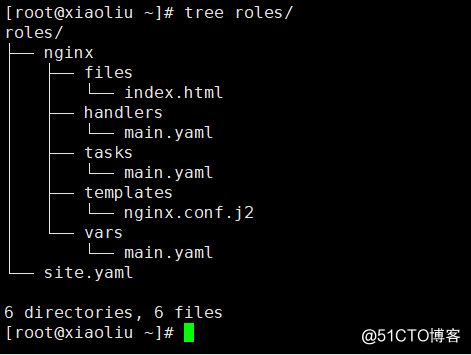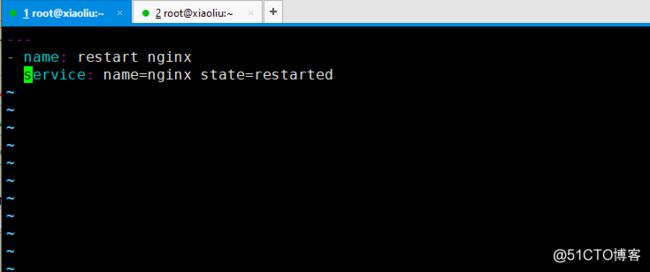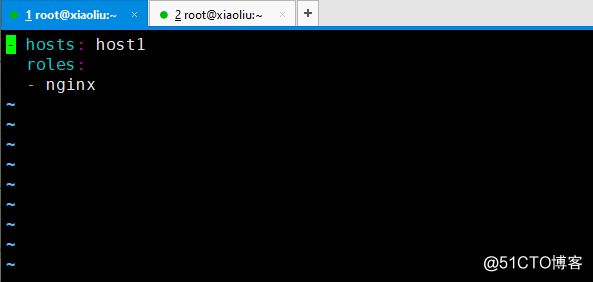一、abstract-简介
1.logo:
2.介绍:
(1)ansible是新出现的自动化运维工具,基于Python开发,集合了众多运维工具(puppet、cfengine、chef、func、fabric)的优点,
实现了批量系统配置、批量程序部署、批量运行命令等功能。
无客户端。
(2)我们要学一些Ansible的安装和一些基本概念,然后我们会开始研究一些真正有意思的东西 – playbook,配置管理,部署以及语法编排.我们将会学习如何使用/usr/bin/ansible执行ad-hoc并行命令,我们还会学习ansible的核心有什么样的模块可供使用.当然以后你也可以写你自己的模块,我们会在后期讲到.
(3)工作原理:
二、instal-部署:
1.环境:ansible服务器 10.8.162.86
ansible客户机:10.8.162.60
2.ansible服务器:域名解析:
vim /etc/hosts
10.8.162.86 ansible
10.8.162.60 host1
注:anisble客户机只需准备好ip 和yum源环境即可
3.anisble服务器下载ansible及相关扩展包
yum install -y epel-relea
注:安装epel源,如果您在非学校环境,请使用下方阿里YUM
(1):rm -rf /etc/yum.repos.d/*
(2):wgrt -O /etc/yum.repos.d/epel.repohttp://mirrors.aliyun.com/repo/epel-7.repo
(3)wget -O /etc/yum.repos.d/CentOS-Base.repo http://mirrors.aliyun.com/repo/Centos-7.repo
4.>yum install -y ansible
(1)部署是否完成:
5.ansible服务器基础:
(1)定义主机清单:
(2)测试连通性:ansible host1 -m ping
ansible host1 -m ping 结果失败了
(3)ansible host2 -m ping -u root -k -o 增加用户名选项 增加用户名选项
(4)去掉(yes/no)的询问 第一次连通会提示输入yes,由于我已经做过好几次了,所以没显示,请见谅!
vim /etc/ssh/ssh_config
StrictHostKeyChecking no
重启sshd:systemctl restart sshd
测试
(5)特殊情况:(6)ssh-key(可选)
免密码ssh-key的方式。
ssh-keygen
ssh-copy-id IP地址 推送公钥
ansible host1 -m ping -o 简介输出,直接能成功
三、Inventory -主机清单
1.含义:清查;存货清单;财产目录;主机清单
2.增加主机组:由于我的只有一台客户机,所以我就只把host1拉一个组 >vim /etc/ansible/hosts
[webserver]
host1
输出这个主机组就可以了。主机组可以有多个anisbile客户机
ansible webserver -m ping -u root -k -o
3.增加用户名,密码
(1)vim /etc/ansible/hosts
一台客户机这样写
[webserver]
host1 ansible_ssh_user='root' ansible_ssh_pass='666666'
测试,不需要密码了
(2)假入有四台客户机这样写:
[webserver]
host[1:4] ansible_ssh_user='root' ansible_ssh_pass='666666'
四台需密码一致,用户一致(3)请思考主机和主机的用户名密码不同。如何设置?
[webservers]
host1 ansible_ssh_user='root' ansible_ssh_pass='777777'
host[2:4] ansible_ssh_user='root' ansible_ssh_pass='666666'
4.增加端口:
(1)请将host1的sshd程序端口修改为2222
vim /etc/ssh/sshd_config
port 222
重启sshd systemctl restart sshd
ansible webservers -m ping -o 失败,因为默认端口已更改
(2)解决办法 配置文件增加端口:
[webserver]
host1 ansible_ssh_user='root' ansible_ssh_pass='666666' ansible_ssh_port='2222'
测试: 成功
请将用户名密码和端口回复原状
5.组:变量
(1)ansible内部变量可以帮助我们简化主机清单的设置
vim /etc/ansible/hosts 多台客户机情况
[webserver]
host[1:4]
[webserver:vars]
ansible_ssh_user='root'
ansible_ssh_pass='666666'
6.子分组:在把多个组的组名合到一个组里面,更利于管理,用于本机硬件问题,就不演示了 ,写下来给你们看看
(1)vim /etc/ansible/hosts
[apache]
host[1:2]
[nginx]
host[3:4]
[webserver:children]
apache
nginx
[webserver:vars]
ansible_ssh_user='root'
ansible_ssh_pass='666666'自定义主机列表:
(2)>vim hostlist
[dockers]
host1
host2
[dockers:vars]
ansible_ssh_user='root'
ansible_ssh_pass='666666'
ansible -i hostlist dockers -m ping -o
7.Ad-Hoc-点对点模式
(1)简介:临时的,在ansible中是指需要快速执行的单条命令,并且不需要保存的命令。对于复杂的命令则为 playbook。
(2)shell模块:
①:ansible webserver -m shell -a 'hostname' -o //获取主机名
②:ansible webserver -m shell -a 'hostname' -o -f 2 //-f 2 指定线程数
-f FORKS, --forks=FORKS Ansible一次命令执行并发的线程数。NUM被指定为一个整数,默认是5
specify number of parallel processes to use
(default=5)
③ansible host1 -m shell -a 'yum -y install httpd' -o //给host1部署apache
④ansible host1 -m shell -a 'uptime' -o //查看负载信息
(3)复制模块 :帮助:ansible-doc copy
①:案列1:ansible webserver -m copy -a 'src=/etc/hosts dest=/tmp/2.txt owner=root group=bin mode=777'
//把服务器上的/etc/hosts里的文件拷贝到webserver组的所有客户端
客户端的文件
ansible webserver -m copy -a 'src=/etc/hosts dest=/tmp/2.txt owner=root group=bin mode=777'
组里的客户机收到的文件
②案例:如果文件有多份,可以进行备份。
再次修改hosts文件
ansible webserver -m copy -a 'src=/etc/hosts dest=/tmp/2.txt owner=root group=bin mode=777 backup=yes'
查看客户机
(3)用户模式:帮助:ansible-doc user
①创建用户:ansible webserver -m user -a 'name=xiaowang123 state=present'
客户机验证
②:修改密码:生成加密密码:echo '777777' | openssl passwd -1 -stdin
生成密码值:$1$ROZP4CHD$xz0E.6.d1H.8EUAag4JXR1
修改密码:ansible webserver -m user -a 'name=xiaowang123 password="$1$ROZP4CHD$xz0E.6.d1H.8EUAag4JXR1"'
客户机验证:登录成功
③:修改shell
ansible webserver -m user -a 'name=xiaowang123 shell=/sbin/nologin append=yes'
删除用户:
ansible webserver -m user -a 'name=xiaowang123 state=absent'
客户机验证
(4)软件包管理:
①:帮助:ansible-doc yum
②:ansible host1 -m yum -a 'name="*" state=latest' //升级所有包
③:ansible host1 -m yum -a 'name="httpd" state=latest'//安装apache
(5)服务模块
①:ansible host1 -m service -a 'name=httpd state=started'//启动
②:ansible host1 -m service -a 'name=httpd state=started enabled=yes'//开机自启
③:ansible host1 -m service -a 'name=httpd state=stopped'
//停止
④ansible host1 -m service -a 'name=httpd state=restarted' //重启
⑤:ansible host1 -m service -a 'name=httpd state=started enabled=no' //开机禁止启动
(6):文件模块:
①:帮助:ansible-doc file
②:ansible host1 -m file -a 'path=/tmp/88.txt mode=777 state=touch' //创建文件
③:ansible host1 -m file -a 'path=/tmp/99 mode=777 state=directory' //创建目录
(7)收集模块
①:帮助:ansible-doc file
②:ansible host1 -m setup //查询所有信息
③:ansible host1 -m setup -a'filter=ansible_all_ipv4_addresses'
(8)YAML-YAML Ain’t Markup Language-非标记语言
①:语法:列表:
fruits:
- Apple
- Orange
- Strawberry
- Mango
②:martin:
name: Martin D'vloper
job: Developer
skill: Elite
③:实例:
ansible服务器:
准备共作
ansible all -m yum -a 'name=httpd state=removed' -o //清理环境
yum install -y httpd //准备配置文件
mkdir apache
cd apache
cp -rf /etc/httpd/conf/httpd.conf .
grep '^Listen' httpd.conf Listen 8080 修改配置,用作推送编写剧本
vim apache.yaml
- hosts: host1
tasks:- name: install apache packages
yum: name=httpd state=present- name: copy apache conf
copy: src=./httpd.conf dest=/etc/httpd/conf/httpd.conf- name: ensure apache is running
service: name=httpd state=started enabled=yes
注:里边的文件一定要照好,不行可以复制我的,然后修改里边的东西
ansible-playbook apache.yaml --syntax-check //检测语法
ansible-playbook apache.yaml --list-tasks //列出任务
ansible-playbook apache.yaml --list-tasks //列出主机
ansible-playbook apache.yaml
测试:http://10.8.162.62:8080 //http的测试页面注:列出客户机为何起不来的httpd服务
查看端口:是否80端口和别的程序80端口冲突
netstat -tunlp |grep :80 //查看端口 ,如果端口冲突,修改端口
vim /etc/httpd/conf/httpd.conf //修改端口
systemctl start httpd //启动httpd
systemctl stuts httpd //查看状态 ,
④:handlers:
下载
如果配置文件发生变化 :Listen 8888
[root@xiaoliu apache]# vim httpd.conf
ansible-playbook apache.yaml //再次执行,命令成功,但配置未生效,所以要增加处理程序。设置触发器
需要在写入处理程序;
vim apache.taml
如果配置文件再发生变化。 Listen 9080[root@xiaoliu apache]# vim httpd.conf
ansible-playbook apache.yaml :再次执行,配置生效,触发成功
测试成功:
(9):Role-角色扮演 yum -y install tree
①:简介:roles则是在ansible中,playbooks的目录组织结构。
将代码或文件进行模块化,成为roles的文件目录组织结构,
易读,代码可重用,层次清晰。
②:目标:通过role远程部署nginx并配置
③:目录结构:
④:准备目录结构
mkdir roles/nginx/{files,handlers,tasks,templates,vars} -p
mkdir roles/nginx/{files,handlers,tasks,templates,vars} -p
echo 1234 > roles/nginx/files/index.html
yum install -y nginx && cp /etc/nginx/nginx.conf roles/nginx/templates/nginx.conf.j2
查看: tree roles/
⑤:编写任务 :vim roles/nginx/tasks/main.yaml
name: install epel-release packge
yum: name=epel-release state=latestname: install nginx packge
yum: name=nginx state=latestname: copy index.html
copy: src=index.html dest=/usr/share/nginx/html/index.htmlname: copy nginx.conf template
template: src=nginx.conf.j2 dest=/etc/nginx/nginx.conf
notify: restart nginx- name: make sure nginx service running
service: name=nginx state=started enabled=yes
⑥:准备配置文件: vim roles/nginx/templates/nginx.conf.j2
worker_processes {{ ansible_processor_cores }}; //调用内部已知变量
worker_connections {{ worker_connections }}; //自定义变量
修改前:
修改后:
⑦:编写变量:vim roles/nginx/vars/main.yaml //worker_connections: 10240
⑧:编写处理程序:vim roles/nginx/handlers/main.yaml
’---
‘- name: restart nginx
service: name=nginx state=restarted‘
⑨:编写剧本:vim roles/site.yaml
- hosts: host4
roles:- nginx
⑩:实施:
cd roles
ansible-playbook site.yaml --syntax-check //测试
ansible-playbook site.yaml //实施剧本
验证host1





